- Overview
- Specializations
- Online Adult Gerontology – Primary Care Nurse Practitioner (AGPCNP) Program
- Adult Gerontology Acute Care Nurse Practitioner (AGACNP)
- Online Pediatric Nurse Practitioner (PNP) Program
- Online Family Nurse Practitioner (FNP)
- Online Psychiatric Mental Health Nurse Practitioner Program (PMHNP)
- Online Women’s Health Nurse Practitioner Program (WHNP)
- Program Details
- Careers
- Curriculum
- Admission Requirements
- University Details
- Faculty
- FAQs
- Resources
- Tuition and Fees
Online Women’s Health Nurse Practitioner Program (WHNP)
Overview
Are you a working nurse interested in becoming a nurse practitioner (NP) specializing in women’s primary care? Regis College’s online Master of Science in Nursing (MSN) with a focus in Women’s Health Nursing Practice (WHNP) can help you take that next step.
Advance your career to a new level as you learn to care for women’s unique health needs from preadolescence through postmenopause. Our online Women’s Health Nurse Practitioner program prepares you to help women with sexual health, pregnancy, childbirth, postnatal care, wellness examinations, family planning, and health issues common among women, such as breast cancer and osteoporosis.
Designed to be inclusive with three available entry points (Associate Degree in Nursing to MSN, Non-Nursing Bachelor’s to MSN, and Bachelor of Science in Nursing to MSN), the program’s industry-relevant coursework can help you learn how to promote overall health for women through nurse management or advanced practice.
- What can you do with an advanced women’s health nursing degree?
- Where do women’s health nurse practitioners work?
You may be eligible for a one-time Rise at Regis credit, valued at $1,025, if you start your journey this summer. There’s a 6-credit enrollment requirement.
Calendar
Credits: 39-63
Courses: 19
Duration: 26-38 months
Application Deadline:
March 30, 2026
Upcoming Start Date:
May 4, 2026
Why Choose Regis for Your Online WHNP Program?





A Virtual Extension of Our Highly Regarded On-Campus Program
The online MSN is a virtual extension of our highly regarded on-campus program, one of the largest nurse practitioner programs in Massachusetts. The Regis School of Nursing was the first in New England to be designated a Center of Excellence in Nursing Education and is accredited by the Accreditation Council for Education in Nursing.
At Regis, we work directly with active nursing professionals. That means we have an insider’s perspective on the leadership qualities the field demands, and we design our courses to build those skills. While other schools eliminate women’s health concentrations, we’re taking our WHNP specialization to the virtual classroom to help expand nursing expertise and leadership with this population.
Benefits of an Online Women’s Health Nurse Practitioner Program
Like all nurses, you’re busy. Trying to earn a master’s degree while working and balancing personal and family commitments can be challenging. When you choose the online WHNP program at Regis, you can earn an advanced degree while still having time for other priorities.
- Take the same high-quality courses and learn from the same expert faculty as our on-campus program.
- Enjoy the flexibility to complete coursework on your schedule, when and where it’s convenient for you.
- Make personal connections as you engage with faculty and peers.
- Get the individual attention and support you need to succeed.
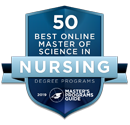

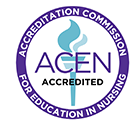

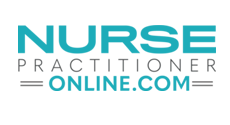
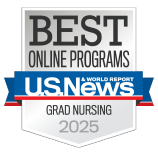
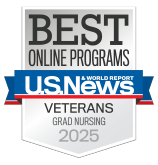
What Can You Do with a WHNP Online Program Degree?
As a women’s health nurse practitioner, you can provide the vital services and counseling women need to maintain their health. Our online WHNP-focused MSN can help you develop the skills to undertake a variety of duties, including:
- Delivering primary care to women
- Providing family planning assistance and counseling
- Conducting wellness examinations, such as Pap smears, mammograms, and sexual health screenings
- Interpreting medical histories
- Delivering prenatal care through supplements and monitoring
- Diagnosing acute illnesses and developing treatment plans
Women’s health addresses a broad spectrum of issues and illnesses. Should you wish to narrow your focus even further, you can specialize beyond general women’s health upon graduation. Options for increased specialization include:
- Cardiovascular care
- Geriatric care
- Oncology
- Women’s primary care
- Gynecological care
- Childbirth and delivery issues
- Reproductive health
- Puberty and menopause
- Antepartum, intrapartum, and postpartum issues
Where Do Women’s Health Nurse Practitioners Work?
Today’s changing health care industry means that women’s health nurse practitioners can apply their skills in a wide range of settings. Our online WHNP program can prepare you to work in:
- Hospitals
- OB-GYN clinics
- Family planning clinics
- Women’s health clinics
- Prenatal clinics
- Women’s prisons
- Private practices
What Is the Typical Women’s Health Nurse Practitioner Salary?
Online Women’s Health Nurse Practitioner Program Job Outlook
Employment of nurse practitioners is projected to grow by an extraordinary 46% from 2021 to 2031, according to the U.S. Bureau of Labor Statistics. This growth will result in the addition of nearly 113,000 new jobs.
Factors driving growth in this sector are an expected increase in the demand for health care services, a greater emphasis on preventive care, and the expected health care demands of an aging population. Furthermore, advanced practice registered nurses (APRNs) are increasingly becoming accepted as a primary source of health care, capable of performing many of the same services as physicians.
WATCH THE WHNP PROGRAM OVERVIEW VIDEO:
Women's Health Nurse Practitioner Careers
Assess, treat and diagnose the specialized health needs of women across their life cycle.
Women’s health concerns are unique and vary considerably from men’s health needs. Women’s health is a particularly important area of health care, especially because the health of mothers may directly impact the health of newborns and families.
Women’s health nurse practitioners deliver comprehensive health care to women throughout their lifespan in areas pertaining to women’s health care needs, including obstetrics, gynecology, urogynecology, gynecologic oncology, infertility, and maternal/fetal medicine. Their responsibilities can include screening women for STIs, cancers, depression, domestic abuse and providing specialized care for lesbian, transgender, and menopausal women. WHNPs may also be qualified to conduct pregnancy testing, fertility evaluation, prenatal visits, and provide after-pregnancy care. WHNPs serve well as advocates for their female patients and provide ongoing education on nutrition and wellness topics.
An opportunity to work as a women’s health nurse practitioner (WHNP) could prove to be particularly rewarding as these professionals are diving deeply into the issues that women uniquely face, are taking significant steps to raise awareness, and provide better services, information and support to women across the nation.
WHNPs are in demand
The American Association of Nurse Practitioners (AANP) reports that as of May 2021, there were 325,000 licensed nurse practitioners in the U.S., however only an estimated 2.9% of NPs are educated and certified as WHNPs.
WHNPs are difficult to find, yet they are an integral segment of the American health care system – over half of the nation’s population is comprised of females.* Female patients and an aging female population, who prefer nurse practitioners and doctors who are trained in the specific health care needs of women, drive the demand for WHNPs.

WHNP responsibilities include:
- Prescribing oral contraceptives
- Consulting with patients for hormone treatments
- Performing well-woman exams
- Breast cancer screening and problem evaluation
- Pap smears, HPV screening
- Health and wellness counseling
- Contraceptive care STD screening, treatment, and follow-up
- Pregnancy testing
- Preconception health, prenatal visits, and after pregnancy care
- Fertility evaluation
- Menopause health promotion and problem management
Common practice settings include:
- OB-GYN clinics
- Family planning clinics
- Home health
- Assisted living/nursing homes
- Planned Parenthood
- Prenatal clinics
- Private practices
- Infertility clinics
- Uro-gynecology practices
- Women’s health clinics
- Women’s prisons
Did You Know?*
- On average, full-time WHNPs reported that they see approximately 19 patients per day.
- The top diagnoses that WHNPs treat are vaginitis, urinary tract infection and abdominal pain.
- The top practice settings for WHNPs are private physician practices and private group practices.
Ready for Your Next Step?
WHNP Online Program Curriculum
We’re here to support you. With several degrees of student support, no GRE requirements, and a flexible learning environment, we’re breaking down barriers that often prevent bright minds from reaching their full potential in advanced practice. Our inclusive approach to leadership starts with three entry points:
- Associate Degree in Nursing to MSN
- Non-Nursing Bachelor’s to MSN
- Bachelor of Science in Nursing to MSN
The online Women’s Health Nurse Practitioner program curriculum builds on the skills you already have with core MSN coursework in subjects such as nurse leadership, nursing theory, community-based nursing, health promotion/disease prevention, health policy, and advanced clinical pharmacology. In addition, you’ll take WHNP-specific courses that include Care of the Childbearing Woman and clinical concentration courses and seminars in Primary Care of the Woman.
Experience an Expertly Crafted Curriculum Taught by Our Supportive Faculty.
Associate Degree in Nursing to MSN
- Associate Degree in Nursing from a regionally accredited institution and accredited program
- Must complete a college-level statistics course prior to the start of classes
- Active unencumbered RN license
- General education courses may be required, depending on your prior undergraduate coursework
Non-Nursing Bachelor’s to MSN
- Bachelor’s degree from a regionally accredited institution of higher education
- Must complete a college-level statistics course prior to the start of classes
- Associate Degree in Nursing (ADN) required
- Active Registered Nurse (RN) license required
- General education courses are not required due to prior bachelor’s degree
Bachelor of Science in Nursing to MSN
- Bachelor’s degree in nursing from a regionally accredited institution of higher education and accredited program
- Must complete a college-level statistics course prior to the start of classes
- Active unencumbered RN license
Core MSN Courses Include:
Women's Health (WHNP)
Online Women’s Health Nurse Practitioner Program Admission Requirements
Registered Nurse with Associate Degree Entry or Registered Nurse with Non-Nursing Bachelor’s Degree Entry:
- An Associate Degree in Nursing or a non-nursing bachelor’s degree from a regionally accredited institution of higher education
- Minimum 3.0 cumulative GPA preferred
- Active unencumbered RN license
- Complete 15 bridge credit hours with a B or better
- Must complete a college-level statistics course prior to the start of classes
- For RNs with an Associate Degree in Nursing, general education courses may be required, depending on your prior undergraduate coursework
Registered Nurse with Bachelor of Science in Nursing Degree Entry:
- A Bachelor of Science in Nursing degree from a regionally accredited institution and accredited program
- Minimum 3.0 cumulative GPA preferred
- Active unencumbered RN license
- Must complete a college-level statistics course prior to the start of classes
Online WHNP Program Application Requirements
You can begin your application process today. To get started you will need to submit the following:
- Application form
- Official transcripts from all post-secondary institutions
- Proof of active unencumbered RN license
- Current resume
- Statement of purpose
- Two letters of recommendation
About Regis

— Dr. Antoinette Hays RN, Ph.D.
President
Meet Our Faculty

Lawana V. Brown, MSN, WHNP-BC

Lisa Krikorian, DNP, APRN-BC, FNP, WHNP
Frequently Asked Questions
Regis is a leading Catholic university in Greater Boston that has been preparing students for success in an evolving, global world since 1927. Our distinguished and personable faculty prepare nurses with a values-based education integrated with cutting-edge technology and industry-focused curriculum in a wide variety of high-demand and niche specializations.
With a focus on holistic patient-centered care, our online MSN program incorporates insider perspectives on the leadership qualities the field demands to help you build the skills you’ll need to positively affect the field.
NPs have greater control over their professional practice and patient outcomes and may benefit from competitive salaries. Many NPs practice independently in some states with prescriptive authority and are being granted more autonomy nationwide.
Additionally, the health care industry is facing a nationwide shortage of physicians and a rising need for primary care, particularly throughout the pandemic. Preparing to become an NP helps nurses hone their skills to deliver the best patient care and outcomes in an industry that continually emphasizes the need to attain ongoing and advanced education.
The program allows three points of entry, providing flexibility to our students:
- RN with Associate Degree (ADN to MSN)
- RN with Non-Nursing Bachelor’s Degree (Bachelor’s to MSN)
- RN with Bachelor of Science in Nursing Degree (BSN to MSN)
Depending on your entry point, you may complete your online MSN degree in as few as:
34 months – RN with Associate Degree (ADN to MSN)
34 months – RN with Non-Nursing Bachelor’s Degree (Bachelor’s to MSN)
26 months – RN with Bachelor of Science in Nursing Degree (BSN to MSN)
*Final curriculum will be decided on individual basis, including potential transfer credits
Depending on your entry point and chosen specialization, the number of credits earned through the online MSN degree may vary:
RN with Associate Degree (ADN to MSN): 54-63 credits/PMHNP 57-66 credits
RN with Non-Nursing Bachelor’s Degree (Bachelor’s to MSN): 54-63 credits/PMHNP 57-66 credits
RN with Bachelor of Science in Nursing Degree (BSN to MSN): 39-48 credits/PMHNP 42-51 credits
Cost Per Credit Hour:
- $1025 per credit hour
Application fee: $75
More information about online graduate nursing program tuition and fees, financial aid, payment options, etc., can be found here.
Yes. You may be eligible to transfer up to 9 graduate credits from a regionally accredited institution and accredited program. Three credits each, final grade of a B- or better. Have more questions? Speak with an admissions advisor to learn more.
*Conditions may apply
The online MSN student will typically complete between 664 and 724 hours of clinical practice, depending on your entry point.
Students have an option to space out clinical hours over 2-4 semesters, with approval from the program director.
Regis is proud to offer a 10% tuition discount on fully online programs for employees, members, and spouses of employees of our partner organizations.*
Regis College aims to help military, veterans, and their families to further their education. This is why we offer a 15% tuition discount to all active and reserve military, veterans, and military spouses for our online programs.
We’re also pleased to offer 15% off tuition on online programs to all federal government employees, and their spouses, working in any federal department.
A 10% Alumni discount is available to anyone who has graduated from Regis with a degree, excluding those who only received a certificate from Regis.
Two levels of graduate assistantships are offered at Regis, giving online students the unique experience of gaining valuable professional skills while benefiting from financial aid opportunities.**
*Some exceptions apply. The Regis partnership discount cannot be combined with any other discount or scholarship offered by Regis.
**Graduate Assistantships are available to graduate students who are enrolled in a minimum of six credits within their graduate program and maintain a 3.0 GPA.
Online Women's Health Nurse Practitioner Resources

The Unique Need for Women’s Health NPs
The rapidly aging population presents challenges for the health care industry, notably a lack of enough qualified WHNPs to care for the unique needs of older women. Without a rapid increase in the number of qualified WHNPs, the industry, and women’s health, may suffer.

The Role of the Nurse Practitioner in Women’s Health
Learn about how women’s health nurse practitioners provide essential services for women across the United States.

Health Issues Specific to Women’s Health
While both men and women contract various conditions, some health issues affect women differently. Learn about 8 common women’s health issues.

The Importance of Teamwork and Collaboration in Nursing
Nurses must communicate with relevant professionals about their patients’ treatment plan while also understanding the role of each assigned team member.

What Is the Importance of Evidence-Based Practice in Nursing?
EBP enables nurses to make data-backed solutions that incorporate clinical expertise and current research into the decision-making process.

BSN or MSN: Which Is Right for Me?
The nursing discipline features a full range of educational options, including baccalaureate, graduate, and terminal degrees.
Tuition and Fees
$1025
Per credit hour
$100-$300
Estimated cost of textbooks per course
Ways to Save on Your Online WHNP Program Tuition

Regis partner employees can receive a discount on their tuition. Find out if your employer is a partner.

Federal government employees as well as active and reserve military and veterans are eligible for a 15% discount on tuition. Find out more.

Regis alumni who have earned a previous degree from Regis are eligible for a 10% discount on tuition. Speak to an advisor for more information.

We are here to support you through the process. Speak to an advisor to learn more.

Earn financial aid helping fellow students while also gaining valuable professional skills. Get more details.
Related Programs

Pediatric Nurse Practitioner

Family Nurse Practitioner

Psychiatric Mental Health Nurse Practitioner

Adult Gerontology – Primary Care Nurse Practitioner

Adult Gerontology – Acute Care Nurse Practitioner

Online BSN to Doctor of Nursing Practice
